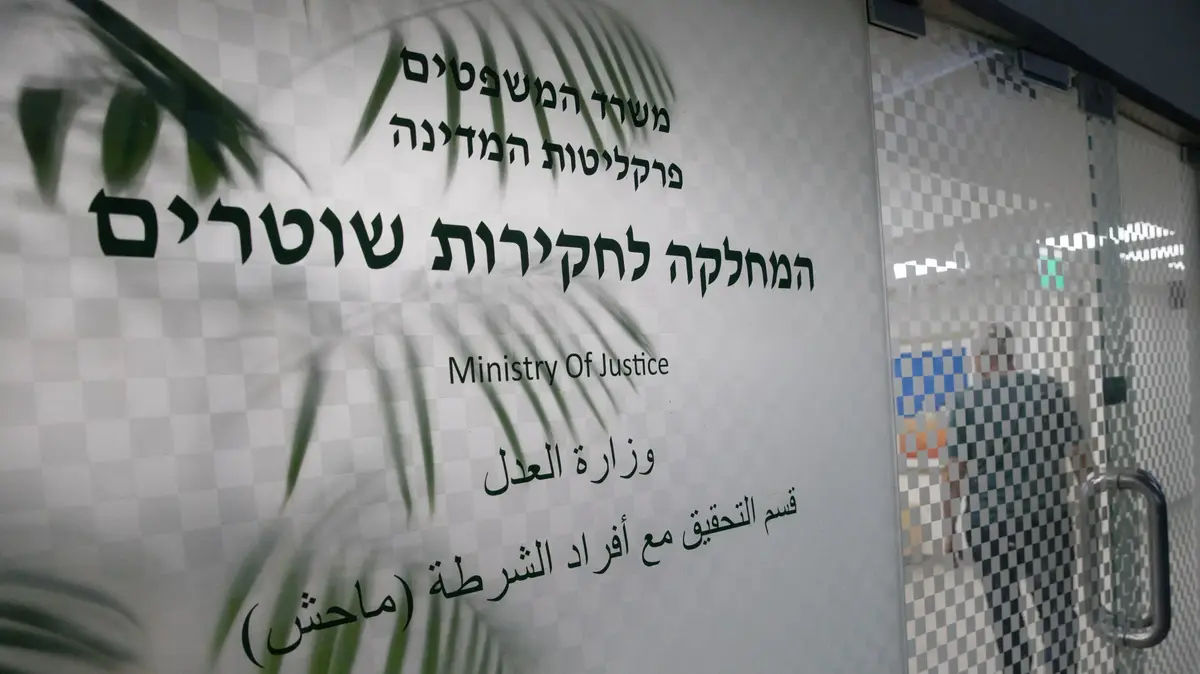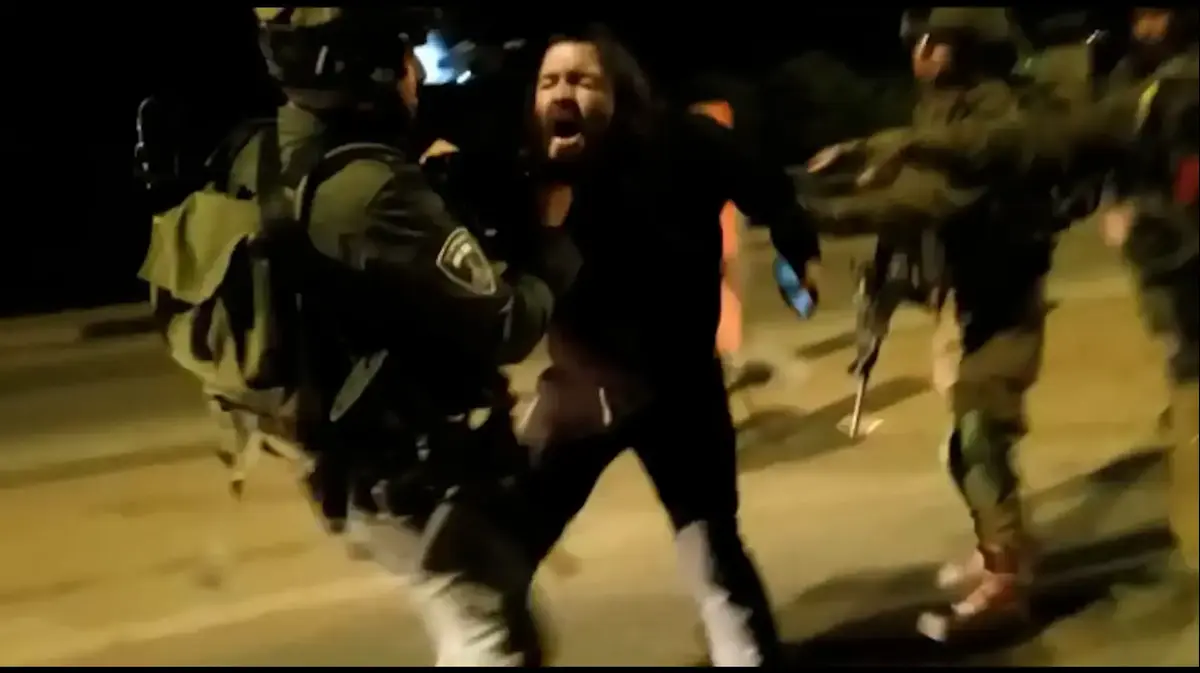- news
- News in Israel
- Criminal news and law
A new directive will determine: When will police officers who used unreasonable force be prosecuted
The Deputy State Attorney clarified the prosecution and investigation policy towards violent offenses of police officers, and determined when legal or disciplinary proceedings should be instituted against them. According to the directive, violence against the helpless or in the interrogation room, as well as racist-motivated violence will tip the scales in the direction of criminal proceedings.
Tags- State Prosecutor
- DIP
- Cops
- Israel Police
- Police violence
- Police violence
Daniel Dolev
Wednesday, 19 August 2020, 22:23- Share on Facebook
- Share on WhatsApp
- Share in general
- Share in general
- Share on Twitter
- Share on Email
The State Attorney's directive is supposed to bring order and increase transparency in one of the most explosive issues DIP faces - clarifying the prosecution and investigation policies of police officers who have used force illegally. "Police officers, unlike other public servants, are equipped with the exceptional authority regarding the use of force for the purpose of fulfilling their duties under the law," the chapter reads in a directive entitled "The Complexity of the Issue."
"There are situations in which the police officer cannot perform a task assigned to him without using this exceptional measure," the state attorney wrote in the new directive he issued. "However, the misuse of this measure, including the use of force without lawful authority or to an extent that exceeds what is required in the circumstances of the case, is of course a prohibited act that undermines the rule of law." It is also written that "it is clear that there are many intermediate situations in the middle ground between the non-use of force at all, and the abuse of this power to the point of defining the act as criminal, in which the main question is the proportionality of the use of force."
The Deputy State Attorney instructed that an investigation be opened only when there is a reasonable suspicion of the unlawful use of force by the police officer. He even warned against automatically labeling any use of force by a police officer as a reasonable suspicion of committing an offense, so as not to create a “cooling effect” that would deter police officers from carrying out their work. In cases where there is doubt, the instructor instructs to conduct a preliminary examination, only to decide whether there is justification to open an investigation.
More on Walla! NEWS
- Cosmetics instead of root canal treatment: The festive reform in the DIP does not deal with the real problem
- Unit "Citizenship" and Accelerated Treatment of Hate Crimes: Nissenkorn's DIP Reform
- DIP: Investigating the conduct of the police in an incident in which demonstrators were attacked in Tel Aviv
- 5 things that must be done soon when entering a new and empty apartment
The Deputy State Attorney instructed that an investigation be opened only when there is a reasonable suspicion of the unlawful use of force by the police officer. He even warned against automatically labeling any use of force by a police officer as a reasonable suspicion of committing an offense, so as not to create a “cooling effect” that would deter police officers from carrying out their work. In cases where there is doubt, the instructor instructs to conduct a preliminary examination, only to decide whether there is justification to open an investigation.
More on Walla! NEWS
High Court for DIP: If there is a complaint that a police officer has beaten a citizen - an investigation should be conducted
To the full article
After the initial examination phase, DIP personnel can shelve the complaint for several reasons: if the circumstances of the incident do not raise a reasonable suspicion of committing an offense, if it is a case where a police officer has authority to use force and the force used was reasonable, or if the use of force was made during an operation. At the discretion of the police officer "and did not deviate from what is permissible, given the reasonable error."
In addition, DIP may decide that "the circumstances of the case as a whole are not suitable for opening an investigation." This is the case, for example, if the victim of the offense refuses to cooperate with the investigation, or in non-serious cases if the assessment is that it will not be possible to obtain evidence that will allow an indictment to be filed. Even in the case of a minor incident, or a complaint filed long after the case and without a reasonable explanation, it will be possible to close the case without opening an investigation.
Once an investigation has been conducted and it has been found that force has been used illegally, DIP must decide whether to refer the case to criminal or disciplinary proceedings. The fact that the disciplinary offense of "unreasonable use of force" is very similar to the offense of assault in criminal law leaves DIP room for discretion. - and the directive is intended to draw guidelines for these cases.
However, like most of the State Attorney's guidelines, the document generally sets out the considerations that the attorney handling the case should consider, and does not necessarily provide clear lines for a decision in each case. For example, if a police officer had the authority to use force, but "the use of force deviated significantly from the reasonable - as a rule, the police officer will be prosecuted." If the deviation from the use of reasonable force was "in insignificant media", as a rule the police officer will be subject to disciplinary action and if the deviation was minor, the filing of the case should be considered on the grounds that he is not suitable for prosecution.
In cases where a police officer has used force without having the authority to do so, the rule is that he will be prosecuted. However, if it is an insignificant use of force or a mistake at the discretion of the police officer, it will be possible to settle for a disciplinary case, and sometimes even shelve the case.
A police officer who used force without authority to do so will be prosecuted
In general, the directive indicates a series of situations in which the tendency to prosecute the police officer who used force will increase. For example, if force was used against a complainant after he was arrested or neutralized, when the complainant was handcuffed and in custody in a police facility, or the use of force was made during an interrogation in an interrogation room. In addition, DIPs tend to choose the criminal route, when a police officer used force against a helpless, disabled or minor complainant, or when the use of force was degrading or resorted to racist motives or while discriminating. Other cases that increase the likelihood of criminal prosecution are when using force Was prolonged, or was accompanied by threats or verbal violence on the part of the police officer.
In the background of the publication of the directive, there is a petition to the High Court submitted by the "Success" association, through attorneys Stav Saar and Elad Mann. The petition sought to compel the Ministry of Justice to formulate and publish orderly guidelines that would clarify the criteria for directing the case of police officers who were questioned as suspects in a disciplinary or criminal proceeding.
Last month, the state informed the High Court that it had issued a general directive regarding the prosecution of state employees for sexual offenses, and also issued a DIP procedure concerning the prosecution of police officers who reported false reports. The directive issued yesterday regarding the use of force by police officers is the third.
- Share on Facebook
- Share on WhatsApp
- Share in general
- Share in general
- Share on Twitter
- Share on Email









